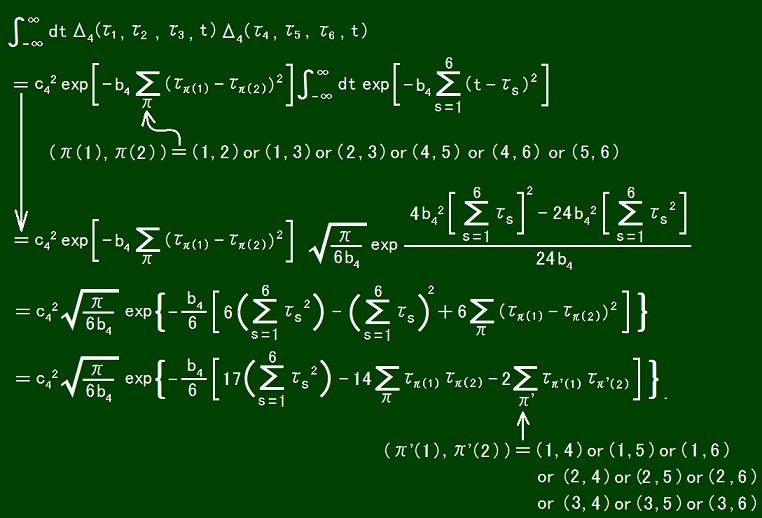
since 2006
Help Sitemap
This page shows how I failed to solve the harmonic oscillator problem.
 .
. .
. .
.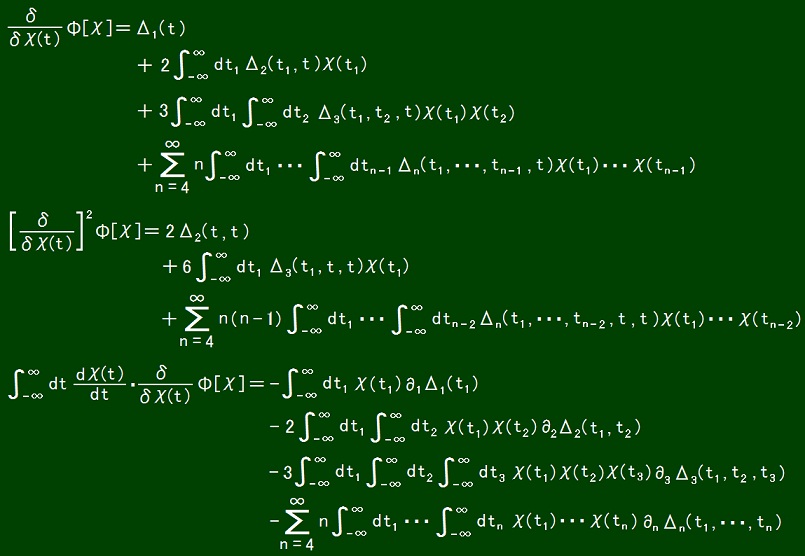
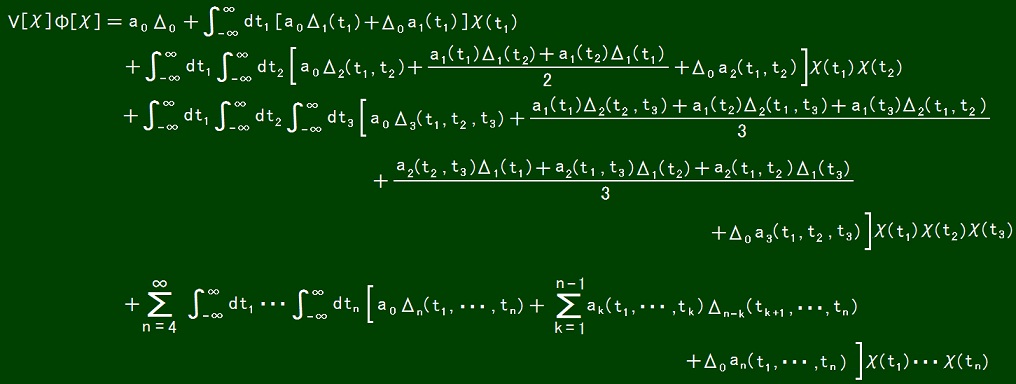
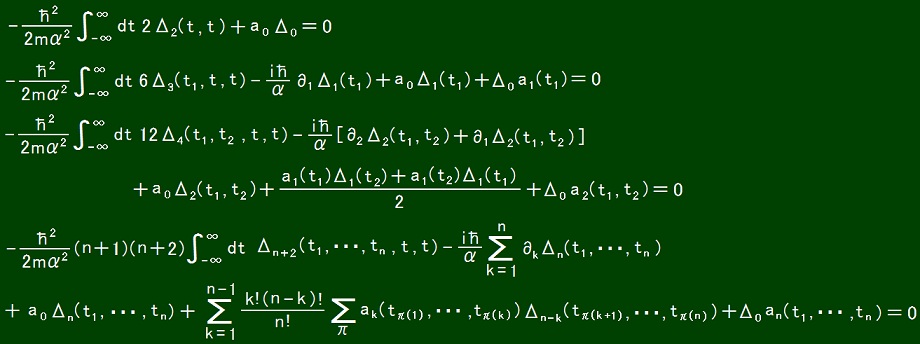
where π(1) < ・・・ <π(k) and π(k + 1) < ・・・ <π(n).
---
---

---
Δ2(t1, t2) = 0.
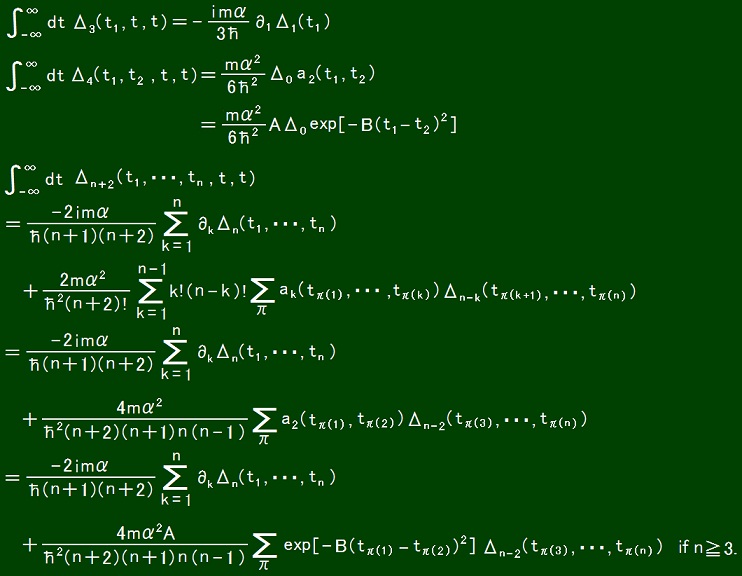
---
Δ1(t1) = 0 ⇒ Δ2k+1(t2k+1) = 0
---.
Δ4(t1, t2, t3, t4) = c4 exp[-b4(t1 - t2)2] exp[-b4(t1 - t3)2] exp[-b4(t1 - t4)2] exp[-b4(t2 - t3)2] exp[-b4(t2 - t4)2] exp[-b4(t3 - t4)2].
Δ4(t1, t2, t, t) = c4 exp[-b4(t1 - t2)2] exp[-2b4(t1 - t)2] exp[-2b4(t2 - t)2]
= c4 exp[-b4(t1 - t2)2] exp[-4b4t2 + 4b4(t1 + t2)t - 2b4(t12 + t22)].


Δ6(t1, t2, t3, t4, t5, t6) = 0.
Δ4k-2(t1, ・・・, t4k-2) = 0.
where π(1) <π(2) <π(3) <π(4) and ・・・ and π(4k-3) <π(4k-2) <π(4k-1) <π(4k) and π(4) <π(8) < ・・・ <π(4k).

